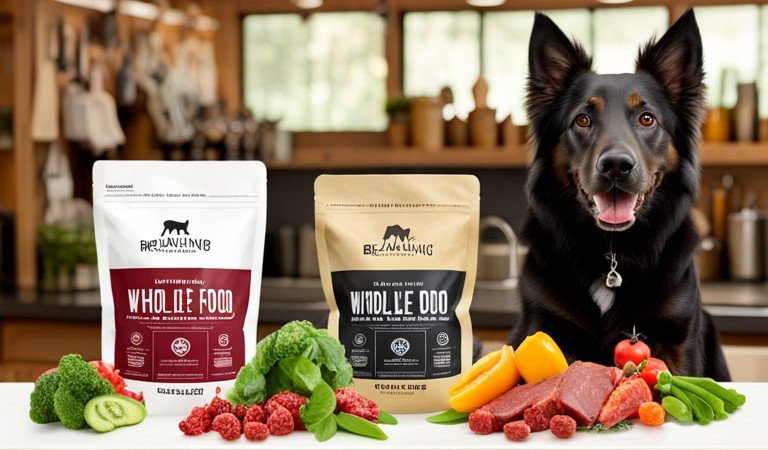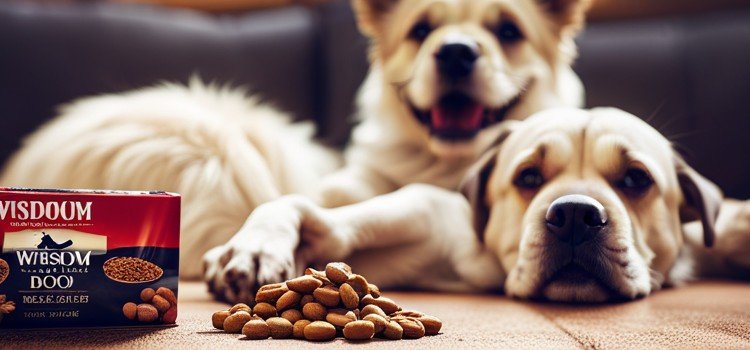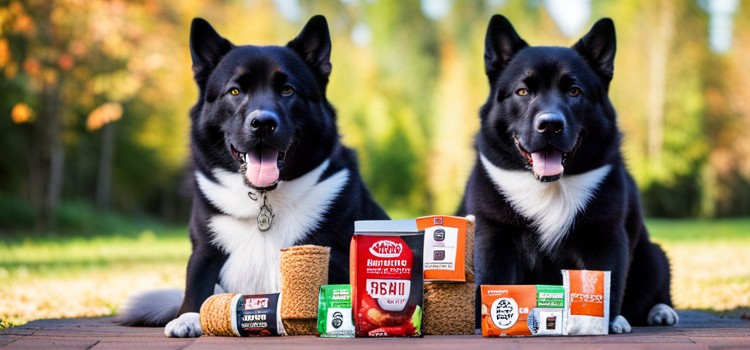As an Amazon Associate committed to the mission of improving the lives of our readers, Live-Clear.com receives a small commission from eligible purchases made through our affiliate links. This revenue enables us to keep producing insightful articles and other material.
When it comes to the well-being of our furry companions, providing a balanced and nutritious diet is crucial. Dogs can benefit from a range of natural goodies in the same way that humans do. However, not all human foods are suitable for dogs. In this guide, we’ll explore the world of whole foods that dogs can eat safely and discuss the benefits of incorporating these treats into their diet.

Understanding the Importance of Whole Foods for Dogs
Dogs, like humans, can benefit from whole foods rich in nutrients and vitamins. These foods contribute to their health, immune system, and energy levels. Incorporating safe and appropriate whole foods into their diet can help prevent obesity and various health issues. Additionally, whole foods can improve dogs’ digestion and promote a healthy coat and skin. They also provide a natural source of antioxidants, which can help reduce the risk of chronic diseases and promote longevity in dogs.
Safe Fruits for Dogs: Nature’s Sweet Delights
Fruits such as apples (seedless), blueberries, and watermelon can be excellent dog treats. They offer natural sweetness along with vitamins and antioxidants. However, it’s essential to remove seeds and pits before serving to prevent choking. Other safe fruits for dogs include bananas, which are rich in potassium and can help regulate blood pressure. Additionally, strawberries are a great option as they are packed with vitamin C and fiber, promoting a healthy immune system and digestion in dogs.
Vegetables That Pack a Nutritious Punch
Vegetables like carrots, sweet potatoes, and green beans are excellent choices for dogs. They are fiber-rich and low in calories, helping healthy digestion and weight management. Carrots are also great for promoting dental health in dogs, as they can help clean their teeth and prevent plaque buildup. Sweet potatoes are a good source of vitamins A and C, which can support eye health and boost the immune system in dogs.
Lean Proteins: A Meaty Affair for Dogs
Lean meats like cooked chicken, turkey, and beef can provide dogs with essential proteins. These meats should be cooked thoroughly, without seasoning or bones that could splinter. It is important to note that lean proteins are crucial for dogs as they help in building and repairing tissues, as well as supporting a healthy immune system. Additionally, it is recommended to remove any excess fat from the meats before feeding them to dogs to prevent digestive issues.
Dairy Delights: Can Dogs Have Dairy?
Dairy products like plain yogurt and cheese, in moderate amounts, can be given to dogs. These can be a source of calcium and protein, but be cautious with lactose-intolerant dogs. Lactose-intolerant dogs may experience digestive discomfort if given dairy products, as they lack the necessary enzymes to break down lactose. You must monitor your dog’s reaction to dairy and consult a veterinarian if you notice any adverse effects.
Grains and Carbs: To Feed or Not to Feed
Grains like cooked rice and pasta can be added to a dog’s diet occasionally. They provide energy, but it’s essential to avoid excessive carbs and focus on whole grains. Whole grains, such as quinoa and oats, are a healthier option as they contain more fiber and nutrients. However, it is essential to remember that every dog is different, and some may have sensitivities or allergies to grains. It is always best to consult with a veterinarian before making any significant changes to your dog’s diet.
Spices and Herbs: Flavorful Additions to a Dog’s Diet
Certain herbs and spices, like parsley, ginger, and turmeric, can benefit dogs. However, consultation with a vet is advised before introducing these into their diet. This is because certain herbs and spices may have different effects on different dogs, and a veterinarian can provide guidance on the appropriate amounts to use. Additionally, some herbs and spices may interact with medications or have potential side effects, so it’s essential to ensure your dog’s safety before adding them to their diet.
Superfoods for Dogs: Myth or Reality?
While some foods are hailed as superfoods, it’s essential to research and consult a vet before adding them to your dog’s diet. Examples include quinoa and coconut oil. It’s important to note that every dog is different, and what may benefit one dog may not be suitable for another. Therefore, it’s crucial to monitor your dog’s reaction to any new additions to their diet and make adjustments accordingly. Additionally, it’s always a good idea to start with small quantities when introducing new foods to avoid any potential digestive issues.

Homemade Treats: DIY Goodness for Your Pup
Making your dog treats can be fun and rewarding. Treats made from peanut butter, oats, and shredded chicken can be a healthier alternative to store-bought ones. Not only do homemade treats allow you to control the ingredients, but they also allow you to cater to your dog’s specific dietary needs. Plus, your pup will appreciate the extra love and care that goes into each homemade treat!
Portion Control: Keeping Your Dog’s Diet in Check
Even when offering healthy treats, portion control is crucial. Treats should not exceed 10% of a dog’s daily caloric intake to maintain a balanced diet. By practicing portion control, you can ensure that your dog is getting the right amount of nutrients without overindulging. It’s essential to consult with your veterinarian to determine the appropriate number of treats for your dog based on their size, age, and activity level.
Allergies and Sensitivities: Identifying Problematic Foods
Dogs can experience dietary allergies and sensitivities just like humans do. Watch for signs of allergies, such as itching or digestive issues, when introducing new foods. If you notice any adverse reactions, it may be necessary to eliminate certain ingredients from your dog’s diet. Your veterinarian can help you identify the specific allergens and recommend alternative options that are safe for your dog to consume.
Introducing New Foods: A Gradual Approach
When introducing new foods, do so gradually, one at a time. This helps monitor your dog’s reaction and identify any adverse effects. By introducing new foods one at a time, you can quickly pinpoint which ingredient may be causing the adverse reaction. It is recommended to give your dog a small portion of the new food and observe for any signs of discomfort or allergies before gradually increasing the amount over time.
Consulting the Vet: Ensuring a Balanced Diet
Consult a veterinarian before making substantial changes to your dog’s food. They can provide personalized advice based on your dog’s age, breed, and health status. A vet can also help you determine if your dog has any specific dietary needs or restrictions to consider when selecting new foods. Additionally, they can recommend any necessary supplements or adjustments to ensure your dog is receiving a balanced and nutritious diet.
Hydration Matters: The Power of Fresh Water
In addition to whole foods, access to fresh and clean water is essential for your dog’s well-being. Hydration supports digestion, temperature regulation, and overall health. Without proper hydration, your dog may experience dehydration, leading to various health issues. It is essential to provide your dog with fresh water throughout the day and ensure they have easy access to it.
The Joy of Treating Your Dog Right
In conclusion, incorporating appropriate whole foods into your dog’s diet can be a rewarding way to show them love and care. By understanding what foods are safe and beneficial, you’re taking steps towards ensuring their long and healthy lives. Additionally, regular exercise is crucial for maintaining your dog’s overall health and well-being. Engaging in activities such as daily walks or playtime can help keep them physically fit and mentally stimulated. By prioritizing their hydration, nutrition, and exercise needs, you are genuinely treating your dog right and fostering a strong bond with them.

FAQs
Avocados can be toxic to dogs due to their content. It’s best to avoid feeding them this fruit.
Grapes and raisins are toxic and should never be given to dogs, as they can lead to kidney failure.
Most nuts are not recommended for dogs due to their high fat content, which can lead to pancreatitis.
No, onions and garlic are harmful to dogs, as they can damage their red blood cells and cause anemia.
Raw meat can carry bacteria that might be harmful to both dogs and humans, so it’s safer to feed them cooked meat.
Amazon and the Amazon logo are trademarks of Amazon.com, Inc, or its affiliates.



